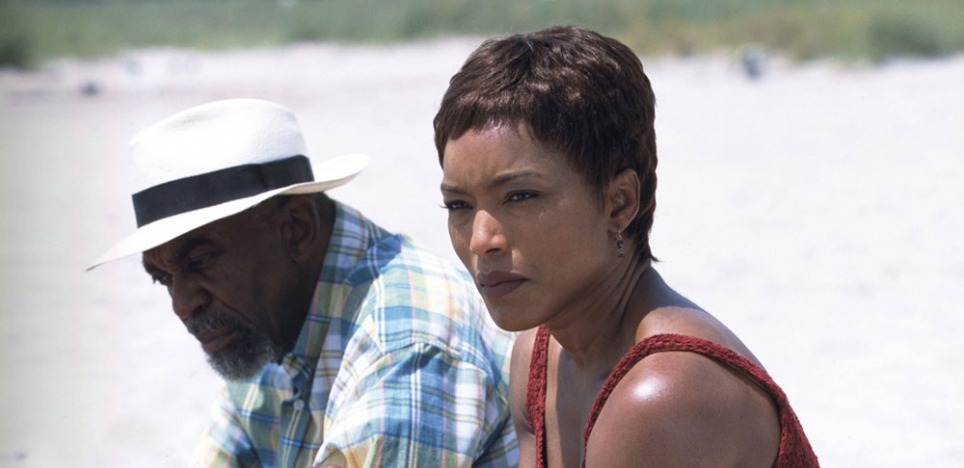Sunshine State looks, feels, and has the impact on the heart of other John Sayles films — Lone Star, Men with Guns, The Secret of Roan Inish, Passion Fish, Eight Men Out, City of Hope, Matewan, to name a few. This independent and highly original director puts before us complex yet endearing characters, often strikingly different from each other, who are struggling with the same concerns of personal identity and identification with family and society. Sayles’s latest is set in two Florida beach towns. It calls us to deepen and nourish our connections to family, community, and the place that serves as our little corner of the universe.
This Values & Visions Film Guide to Sunshine State explores these themes and others with questions designed to help you relate what's happening on the screen to what's happening in your own life. The film runs 141 minutes and is rated PG-13 for brief strong language, a sexual reference, and thematic elements. For our review of the film and a plot synopsis, click here.
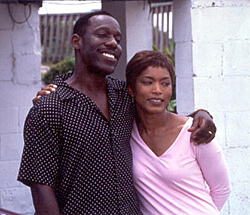
1. The Soul's Formation
"Photos have become the primary artifacts in domestic shrines throughout the world. They have an uncanny way of catching and preserving the history of the soul's formation, the fleeting instants caught by the camera as well as the carefully planned rituals of the family," Shaun McNiff observes in Earth Angels.
- What factors have been most predominant in the formation of the souls of Marly and Desiree within their families? How do they relate to their parents?
- What could visitors tell about the formation of your soul by looking at family pictures of you? What is your favorite photo of yourself with your family? When was it taken and what does it reveal about you?
2. Connections
"If everything is connected to everything else, then everyone is ultimately responsible for everything. We can blame nothing on anyone else. The more we comprehend our mutual interdependence, the more we fathom the implications of our most trivial acts. We feel ourselves within a luminous organism of sacred responsibilities," Lawrence Kushner points out in Invisible Lines of Connection.
- Share your reactions to Dr. Lloyd's zeal for maintaining the integrity of the Lincoln Beach community. Also discuss the spiritual art of connections practiced by Eunice.
- Talk about some of the ways you are conscious of your life as a web of connections. What recent event in your life helped you sense your interdependence with others? What sacred responsibilities do you feel to those closest to you?
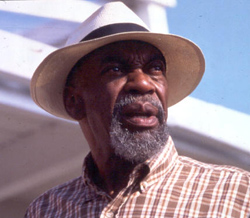
3. Place
"Our present 'leaders' — the people of wealth and power — do not know what it means to take a place seriously, to think it worthy, for its own sake, of love and study and careful work. They cannot take any place seriously because they must be ready at any moment — by the terms of power and wealth in the modern world — to destroy any place," Wendell Berry writes in Sex, Economy, Freedom, Community.
- Share your reactions to the different responses to Plantation Island voiced by the golfers, Furman, Delia Temple, Marly, the Pickneys, Desiree, Eunice, and the developers.
- Do you take the place where you live seriously? Trappist monk Thomas Merton once said: "It is essential to experience all the times and moods of one good place." Design a spiritual practice you can do on a regular basis that will help you to achieve this goal.
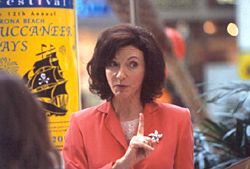
4. Community
"We have long celebrated the tradition of the self-made man, the entrepreneurial innovator who creates a fortune for himself through originality and hard work," observes John Sayles, the director of Sunshine State. "A lot of legislation has been passed to fight monopoly and leave some breathing room for 'the little guy.' But in the last fifteen years there has been collusion between government and international business that almost insures that big money will be able to drive out small money and jobs will go to the country that protects its workers least. I see patriotism and consumerism being touted as being identical virtues. The average citizen has less control over their life — food, regional culture and entertainment are all homogenized. Even history becomes a commodity."
- The two chief boosters of community spirit in the film are Francine Pickney and Dr. Lloyd. Talk about their approaches, philosophies, and goals. In what ways are they similar? different? What are they each trying to promote and protect?
- Looking around your community, is there much room left for the little guy? Do you agree with John Sayles that American culture is being homogenized? Cite examples to support your position.
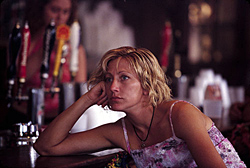
5.The School of Love
"The world is nothing but a school of love; our relationships with our husband or wife, with our children and parents, with our friends and relatives are the university in which we are meant to learn what love and devotion truly are," Swami Muktenanda is quoted as saying in Jonathan Star's The Inner Treasure.
- Discuss the different schools of love experienced in the film by Marly and Desiree. What lessons are they given in this curriculum?
- If the school of love extends through a lifetime from kindergarten through graduate school, what stage of study do you think you are experiencing? Who have been your best teachers of love?
6. Letting Go
"Compassionate generosity is the foundation of true spiritual life because it is the practice of letting go. An act of generosity opens our body, heart and spirit and brings us closer to freedom. Each act of generosity is a recognition of our interdependence," Jack Kornfield writes in A Path With Heart.
- Which characters in the film have the most trouble letting go? Which individuals find freedom in the practice of compassionate generosity?
- Think back over the past month and talk (or journal) about a time when you experienced freedom as a result of letting go.
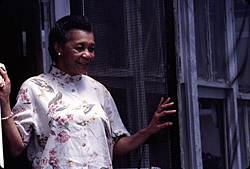
7. Creating Meaning
"We must remind ourselves that, though our lives are small and our acts seem insignificant, we are generative elements of this universe, and we create meaning with each act that we perform or fail to perform," Kent Nerburn states in Make Me An Instrument of Your Peace.
- What little acts by characters in the drama have a beneficial effect on others? Share your response to the end of the film.
- What little acts of kindness, sharing, or generosity have you put out into the world recently? Identify some spiritual teachers who have emphasized the salutary value of seemingly inconsequential deeds.
This guide is one in a series of more than 200 Values & Visions Guides written by Frederic and Mary Ann Brussat. Text copyright 2002 by Frederic and Mary Ann Brussat. Photos by D. Stevens courtesy of Sony Pictures Classics. This guide is posted as a service to visitors to www.SpiritualityandPractice.com. It may not be photocopied, reprinted, or distributed electronically without permission from Frederic and Mary Ann Brussat.
